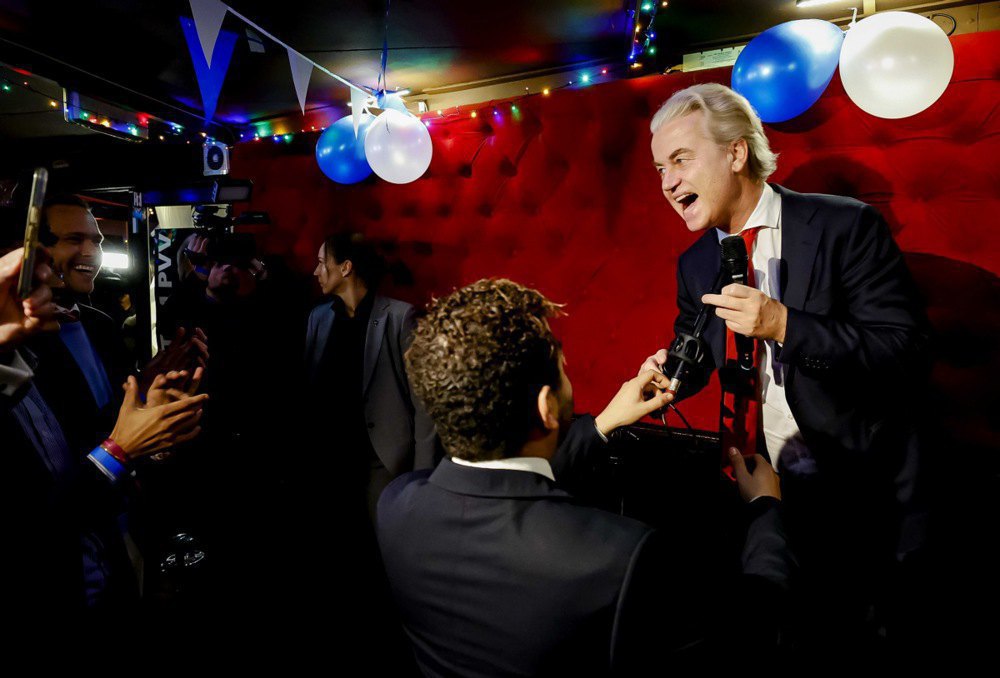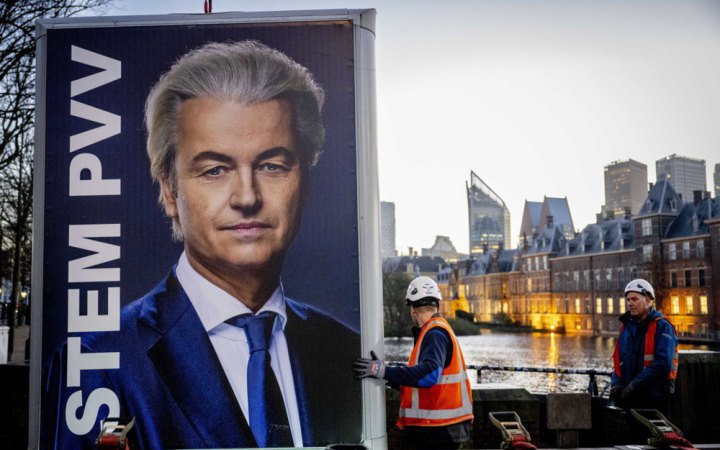In the Netherlands, far-right populist Geert Wilders, leader of the anti-EU Freedom Party (PVV), will start looking for coalition partners after his massive election victory, Reuters reports.
The publication notes that this victory is set to have wide repercussions in the Netherlands and Europe.
A fan of Hungary's eurosceptic Prime Minister Viktor Orban, the vocally anti-Islam Wilders has vowed to halt all immigration, slash Dutch payments to the European Union and block the entrance of any new members, including Ukraine.
Wilders has repeatedly stated that the Netherlands should stop providing military aid to Ukraine, as, according to him, the country needs weapons to be able to defend itself. "We will have to find ways to live up to the hopes of our voters and return the Dutch to the No. 1 position," the politician said.
"Beating all predictions, his Freedom Party (PVV) won 37 seats out of 150, well ahead of 25 for a joint Labour/Green ticket and 24 for the conservative People's Party for Freedom and Democracy (VVD) of outgoing Prime Minister Mark Rutte," the article says.
"The Rutte era ends with a right-wing populist revolt that shakes (The Hague) to its foundations," Dutch center-right daily NRC said.
A coalition of the Freedom Party, VVD, and the NSC party of centrist lawmaker Pieter Omtzigt would have 81 seats combined, making it the most obvious combination but one that is still likely to take months of difficult talks. None of the parties Wilders could form a government with share his anti-EU ideas.
"I am confident we can reach an agreement. We want to govern and... we will govern," he said in his victory speech on Wednesday evening.
Wilders' win sends a warning shot to mainstream parties across Europe ahead of the European Parliament elections next June, which will likely be fought on the same issues as the Dutch election: immigration, cost of living and climate change.

French Finance Minister Bruno Le Maire quickly reacted, while acknowledging that the Dutch election showed "the fears that are emerging in Europe" over immigration and the economy.
For sure, Poland's election last month, won by a grouping of pro-European parties against the nationalist Law and Justice (PiS), shows not all countries in the region are veering to the right.
But Italy's Deputy Prime Minister and leader of the hard-right League Matteo Salvini said the Dutch ballot showed "a new Europe is possible." Last year, Italy formed its most right-wing government since World War Two after the election victory of Giorgia Meloni.
Wilders' victory comes two months after the return to power of the equally anti-EU populist Robert Fico in Slovakia, who has pledged to halt military aid to Ukraine and cut immigration.








